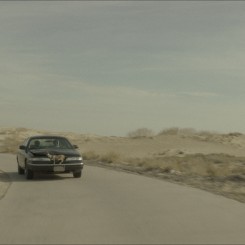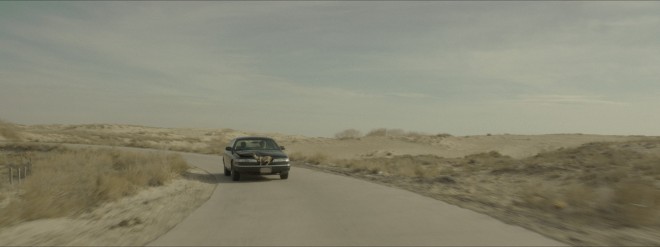The artist Huang Ran has been nominated for the short film section at the 67th Cannes Film Festival with his “The Administration of Glory”—this, with only 9 short films entering the short list out of 3450 works from 128 countries. Huang Ran first came to prominence with his short film “Blithe Tragedy” shown at Beijing’s Space Station; in three short years, he has catapulted to become an internationally recognized video artist in China. On the eve of this announcement, Randian briefly interviewed Huang Ran to discuss his creative path in video art and his influences, as well as his ideas about the critical criteria for short films.
Liang Shuhan: First of all, let me congratulate you on your nomination at Cannes. Could you talk a bit about your work “The Administration of Glory”? Is the title connected to Benjamin Buchloch’s idea of “Aesthetic of Administration”? Why was it called the “Administration of Glory”? In your previous works we may have sensed various issues like “gender”, “diaspora” and “discipline”.
Huang Ran: My work actually has no connection to this “aesthetic of administration”. I chose this term from my own personal point of departure. My new work, “The Aesthetic of Administration”, is different from previous works—it doesn’t take one unique strand, but weaves six stories together into a relatively more complicated structure. The narrative element in this work is stronger than in any of my previous works.
LSH: I know that achieving this nomination is no easy honor—being one of nine short films selected out of 3450 short films from 128 countries. Could you talk more about what you think is the nature of the competition like between the artists for this award? Or maybe what you think the critical criteria is for video art? What is the ”essence” of short film?
HR: I for one haven’t really thought too much about this issue, and I haven’t really tried to guess at the criteria of judgment for a particular award. Actually, I didn’t think of entering the Cannes Film festival; I only started from the point of view of my work. My thought process doesn’t have one unified standard; after all, the content of each work is different, and this decides the fact that the structure of each work is unique. For instance, certain sounds or images are tenable in one work, but might not be in a new work. Long and short films need to have their own structures, too.
LSH: From 2010, after you returned to China and had a relatively influential showing—the video “Blithe Tragedy”at Space Station in Beijing—up to now, have you experienced many changes in your creative direction? Or have you continued along a certain path towards a deeper and broader exploration?
HR: My work constantly pushes forward. My creative direction has still undergone pretty big changes, which doesn’t necessarily mean something “good” or “bad”. I avoid doing the same thing twice, and I never give myself a target in advance. I do consider how to push a particular “limit” forward and how not to work on an already-existing basis. This way, many things are all new for me.
LSH: Can we talk a bit about where your influences came from? Which artistic currents influenced you? And how? For instance, Matthew Barney?
HR: He hasn’t really influenced me—we can all have certain associations visually for “Blithe Tragedy”, but in fact this is a really ordinary method in filming. Very rarely do I completely trust a particular artist, and as much as possible I try to avoid paying too much attention to a certain thing or person. What you pay attention to, in actual fact, influences you rather unconsciously, so I try to maintain independence in my work. There are certainly things that have influenced me—and many at that—but more often I will treat these influences as episodes, rather than a target.
LSH: Do you think the recognition accorded to you by this mainstream prize in the West will have some kind of underlying influence for your future train of thought or explorations?
HR: Awards are often not within the plans of my projects. Even though this award would be important to me if I win, I feel that my work should remain independent. I will not do another work based on what I have just done because of this award. The work I do next year will certainly be different from what I do this year.
LSH:Thank you. And congratulations again!

